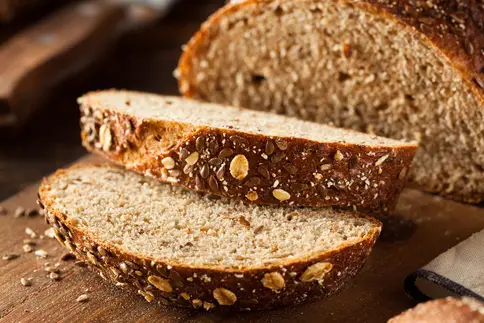With all the different diets and trends from the weight loss industry, nutrition can feel confusing. How do you know if a nutrient or food group is bad for you? Many popular ideas about healthy eating are food myths.
Myth 1: Carbs Are Bad
Carbs are actually a necessary energy source. Carbohydrates break down into sugar, or glucose, that your body uses as energy. It’s true that not all carbs are the same, but focus less on whether you eat high or low amounts and focus more on the types of carbs you are eating.
There are two types of carbohydrates to consider: simple and complex.
Simple carbohydrates have one or two sugars and a simple chemical structure. These are the syrups and table sugars that are found in cookies, cereals, yogurts, sodas, and candies. Refined grains like white rice and flour also contain simple carbs. Your body quickly breaks down simple carbs, which causes a rise in your blood sugar.
Complex carbs have three or more sugars in a complex structure. Your body takes longer to digest these, so they cause a slower, more gradual rise in your blood sugar. Fruits, vegetables, beans, legumes, and whole grains are all complex carbs that have essential vitamins and minerals.
Complex carbs also contain fiber, which moves through your body undigested. This helps keep hunger and blood sugar levels in check.
Instead of cutting out carbs, it’s better to replace refined grains with whole grains and eat food with healthy carbs such as beans, legumes, fruits, and vegetables. Eat fewer candies, chocolates, sugary drinks, cakes, and cookies.
Myth 2: Fat Is Bad
For many years, food marketers and professionals have said that fat is bad. The truth is that you need fat to survive.
Fat has essential nutrients and energy. It is important for making hormones, for immune function, and for absorbing nutrients. You need fat in order to absorb vitamins D, A, E, and K.
Like carbohydrates, there are different kinds of fats: unsaturated fats, saturated fats, and trans fat. Unsaturated fats are liquid at room temperature and are helpful as they lower inflammation and improve cholesterol levels.
Related:Benefits of Eating Sweet Potatoes
Saturated fats are solid at room temperature. For a long time, saturated fat was said to be bad for your heart and cholesterol, but the evidence is mixed. Saturated fat might raise cholesterol or it might have no impact on cholesterol, but professionals still recommend eating lower amounts.
The takeaway is that cutting back on saturated fats like sugar and refined carbs can be good for your health if you replace them with healthy unsaturated fats. Foods such as nuts, seeds, avocados, olives, and fish are rich in unsaturated fats.
Myth 3: Dairy Is Unhealthy
Dairy products are an excellent source of protein, vitamins, and minerals, including calcium. Lots of milk products have added vitamin D that can help build strong bones, especially when it’s combined with natural calcium content.
Lots of yogurts, flavored milk, ice cream, and other milk products do have added sugar, which isn’t a healthy choice. Unsweetened milk and yogurt are a great way to get enough dairy in your diet every day.
Myth 4: Juice Is Healthy
The health food industry says that drinking juice is healthier than eating fruits or vegetables, but this is not true. Juice has lots of sugar and some juice products contain as much sugar as a can of soda. When you drink juice made from fruit instead of eating the fruit itself, you get a lot more calories and it doesn’t fill you. Eating a piece of fruit gives you fiber that helps you feel full and provides essential vitamins.
What’s more, the health food industry often sells juice as a “cleanse” or “detox.” Your body already has detoxification systems that work very well, including your kidneys and liver. There is no evidence that you need to cleanse or that juices benefit your natural detoxification systems.
Myth 5: Gluten-Free Is Healthier
Gluten-free diets are not healthier if you don’t have gluten intolerance or celiac disease. Celiac disease is an autoimmune disease where eating gluten damages your intestines, leads to problems with nutrient absorption, and causes long-term health complications. People with celiac disease must eat a gluten-free diet.
Gluten is a protein in wheat and other grains. If you are eating a gluten-free diet but don’t have gluten intolerance, you might be missing out on vitamins, minerals, and other nutrients in grains that are good for your health.
Related:How Calories Affect Your Metabolism
Bottom Line: Get Rid of Common Food Myths
Before you follow the latest diet trends, believe common food myths, or cut out whole groups of foods, it’s a good idea to talk to a dietitian or your doctor about what’s right for you.
